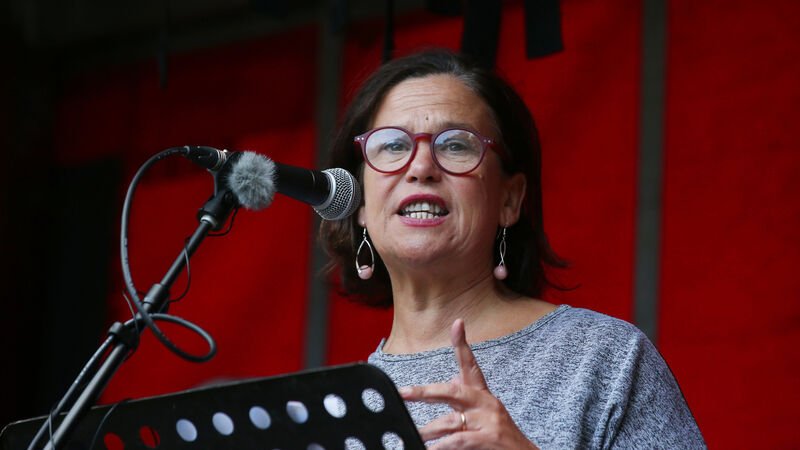Mary Lou McDonald focuses on young people in Ireland's Future speech

Pic Stephen Collins/Collins Photos
Attendees of a Irish unity event held in Dublin this afternoon were told “history is happening now” as calls were made for “an Ireland beyond partition”.
Sinn Féin leader Mary Lou McDonald gave a speech at the Ireland’s Future - Together We Can conference in which she said “the challenge is now. The moment is now”.











